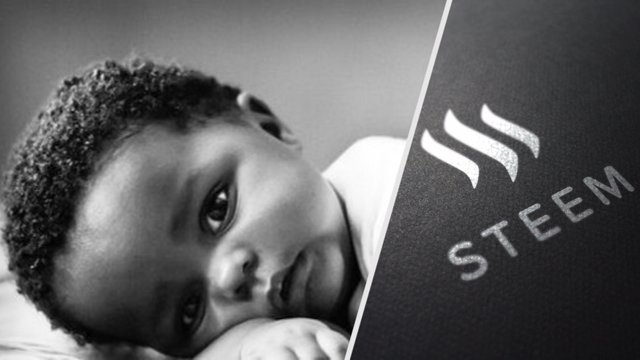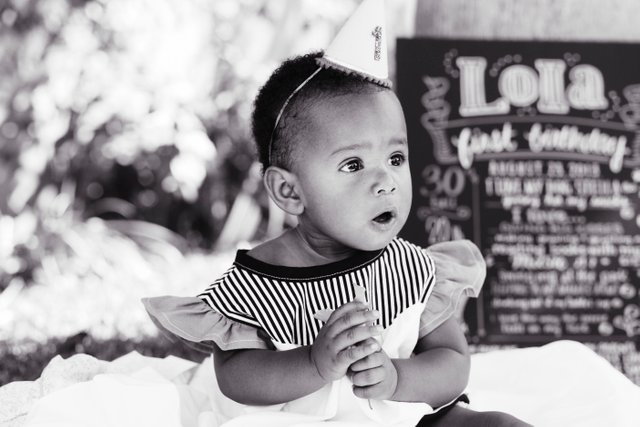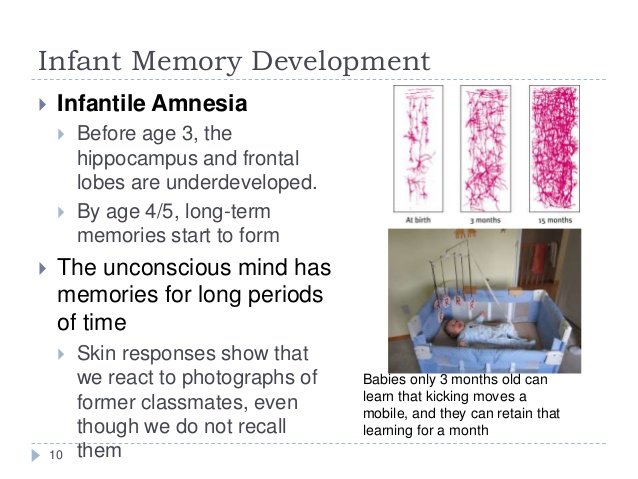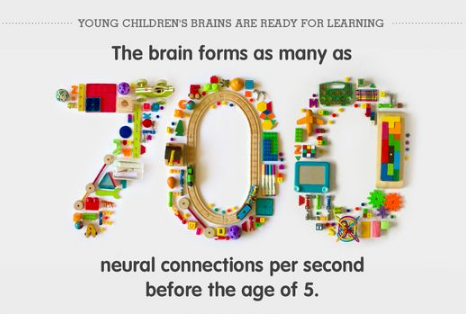Why Can't We Remember Being Babies?

Childhood memories are wonderful: playing with your siblings in the park, going on family holidays, getting to know your friends at school ... But what is your earliest memory?
Have you ever noticed that humans can't seem to remember anything that happened roughly before they were 3 years old?
Your first steps, your first birthday, your first words.. your parents can show you pictures or tell you about it, but you won't remember it yourself.
Why does this strange phenomenon happen to us?
This effect is called childhood amnesia -
or infantile amnesia, a name created by famous psychologist Siegmund Freud.
It happens to everyone! It seems like we just cannot remember anything that happened prior to our third birthday.
But what's interesting is that we don't forget everything we learned at that age, for example our language and the ability to walk.
What we can't remember are so-called episodic memories: the memories of events and places.

But the effect is also not just related to age.
If you ask a 40-year old person to recall memories from when they were 20, they'll be able to tell you quite a lot about it.
But if you ask someone that's 20 about their first year of their life, they won't remember anything.
Now this might lead to the conclusion that Babies simply can't make memories yet - but that's not true either.
Researchers tested Babies as young as 5 months old, and connected their brains to a device that would read the brain activity.
First they showed the babies some meaningless colorful patterns, and then they would flash the picture of a human face for a few seconds.
The Babies brain activity clearly showed that they recognized the human face - so they are consciously thinking, and obviously they also remember and recognize things like their parents, their favorite toy, their crib etc.

Another interesting point is that kids are actually able to remember early memories - up to a certain age!
A study was conducted where 3-year old kids were interviewed about past events like a family trip or a birthday party.
At age 5, 6 and 7, these kids could still recall up to 60% of those early toddler memories.
But when asked again at age 8 or 9, they could suddenly recall less than 40% of it.
So it seems like there's a specific point in our aging process where we lose the ability to access those early informations - or maybe they get deleted by then.
Scientists are not sure, but there are a few different theories:
The first theory focuses on the difference of episodic and semantic memories.
Semantic memories consist of the most important things we learn like talking, walking etc.
So some scientists suggest that we focus on building our semantic memories first, so that the episodic memories won't get in the way of that process.
Otherwise, you could have a bad experience with something and be scared of it, before even knowing what it is.
So the supporters of this theory suggest that our brains have been purposely built in a way to favor the creation of semantic memories at first.

Another, more popular theory, is linked to the rapid growth of our brain cells at a young age.
This process is called Neurogenesis - the creation of new Neurons.
No matter how old we are, our brain is constantly forming new Neurons, but when we're young, this process happens a lot faster.
Our hippocampus is an area in the brain that plays a key role in this process. It controls the way we create and store memories.
And that area of the brain isn't fully developed yet when we're born - it keeps growing and expanding.
So since we can remember our early memories up to a certain age, it almost seems like the hippocampus is clearing space for future memories around age 8 or 9.
Scientists have studied this theory: they stimulated mice's brains to a rapid neurogenesis process.
The more neurons these mice generated, the more older memories they forgot.
But when the scientists slowed down the cell growth in young mice, they forgot less about their childhood.
The hippocampus is not the only part in our brain active in memory creation so this doesn't explain every aspect of the phenomenon, but it might be a reasonable theory.

And other researchers have found interesting aspects to add to this as well:
For one, it seems like the point of our earliest memory depends a lot on the culture.
Self-centered memories from people growing up in western cultures seem to start earlier, where memories in eastern countries generally don't have such a high value, and the ego is not as important in those cultures.
Also, our earliest memories influence a lot in our behaviour - we just can't remember it.
So this would mean that our earliest memories don't get deleted - they are just stored in some part of the brain that we lose access to when we're about 8 or 9.
As you can see, this is a very interesting and highly discussed topic among scientists.
We still don't have a clear answer to the phenomenon of childhood amnesia yet, but there are many different theories - and maybe we'll find out the truth soon!
Images: 1, 2, 3, 4, 5, Sources: 1, 2, 3
- Instagram -

© Sirwinchester
That is true we don't remember our first step nor how our parents taught us to walk.
Exactly, long-term memories are only being activated later in life!
One of the first things I remember was when I was 4 years old my mom was ill for a few weeks and I had this long wavy blond hair that was very fine and it became so tangled that my dad couldn't manage it so off to the barber shop we went and when we returned home I had a Buster Brown haircut. My mom was sooooooo upset! My dad's mom tried to help by treating me to what they called a "machineless wave" where I was connected to all these curlers that dangled from a wheel looking apparatus. My curls never returned and my dad paid a heavy price for months because of his Buster Brown haircut decision for me.
Hahahaha, I can imagine how upset your mom was! But it seems like you don't miss your curls too much in the end
My first memory (for sure) is playing follow the leader in the summer at the age of four or so, walking in the grass on a bright, sunny day around a big red barn.
I also remember being sleepily dropped off at a babysitter at a trailer home near an airport in Indianapolis, on a cold, rainy morning. My mother told me recently that this must have been much younger, around two or three, for this memory.
Currently watching my 7 month old daughter and 3 year old son developing memories right now. Wild ride from the other end. I've been very curious to know when my sons 'first memory' will be. I've been actively engaging him about the topic to see if I can get him to remember anything.
Great post and topic!
Interesting "experiment" to see what your son's first memory will be - it must be so strange to see a baby grow and know that they won't remember any of the current events!
This is fascinating to me. I wonder how much these experiences we have at a young age that we can't remember influence our personality. I have an almost one year old daughter and I see her making memories that I would like to think are shaping her personality even if she can't remember the specifics.
Very interesting. Thanks for posting this.
You're welcome and glad you enjoyed the post!
"Infantile Amnesia" is a misnomer. Amnesia implies that something has been forgotten. Experiential memories simply aren't recorded during infancy to have been forgotten.
For details of a specific experience to be strung together as a memory, one must have a medium for their description. The medium is "language." Early memories are fuzy because we have few words to describe our experiences. As we get older and learn more words, our memories become more and more vivid. The more words we learn - even better if multiple languages are learned - the clearer and more distinct our ability to recall information and, incidentally, the more vivid our dreams. Memories will always be faulty because it is impossible to capture the substance of time or experience using language; but words do their best to approximate meaning.
There is a kind of internal language that brains are hardwired with. It allows for the formation of concepts which persist even in the absence of language to describe thoughts. Babies respond to things that are familiar even though they cannot describe them internally or externally. That internal language exists to faciliate survival instincts and lays the foundation for eventual learning, but does not encode experiential memory.
Good point with the language! thank you for your interesting comment.
Yes the term "amnesia" seems quite misleading, it's a term that Freud has come up with.
"So this would mean that our earliest memories don't get deleted - they are just stored in some part of the brain that we lose access to when we're about 8 or 9."
My understanding is that everything we experience from birth till death is stored in the unconscious part of the mind. I don't think this has been conclusively proven, but neurosurgeon Wilder Penfield did some famous experiments in this area.
He found that he could trigger the appearance of long-forgotten memories in his patients by stimulating certain regions of the brain.
Very interesting, thanks for linking me to Penfield!
And yes I agree that there is much more stored in our brains than we have access to. Who knows if Science will develop far enough one day to explore it all!
I have told my family many times I could recall being in my cot shared with my baby brother who couldn't sit, I must have been 18mths as I was not able to walk yet and I couldnt speak. I can still recall my dad playing chess and sitting with his two friends smoking in the caravan we lived in. My mum was with two ladies cooking at the stove. That moment didn't last longer than maybe a few minutes at best. Both my parents were shocked that I could even recall that we lived in a caravan at all and it was the earliest and last memory until I was about 3 and we moved into a house. My brother had often marvelled that I could remember things about us growing up as kids he could not. I just wish I could remember where I left my keys! :(
Very interesting post. I was born in 1999 and my first memory was from when I was very young, about 3 years old. I was sitting on the couch in my living room with my mother as the twin towers collapsed on television. It's a sad first memory but interesting. Maybe I remember it because of the significance and the emotions of the people around e at the time